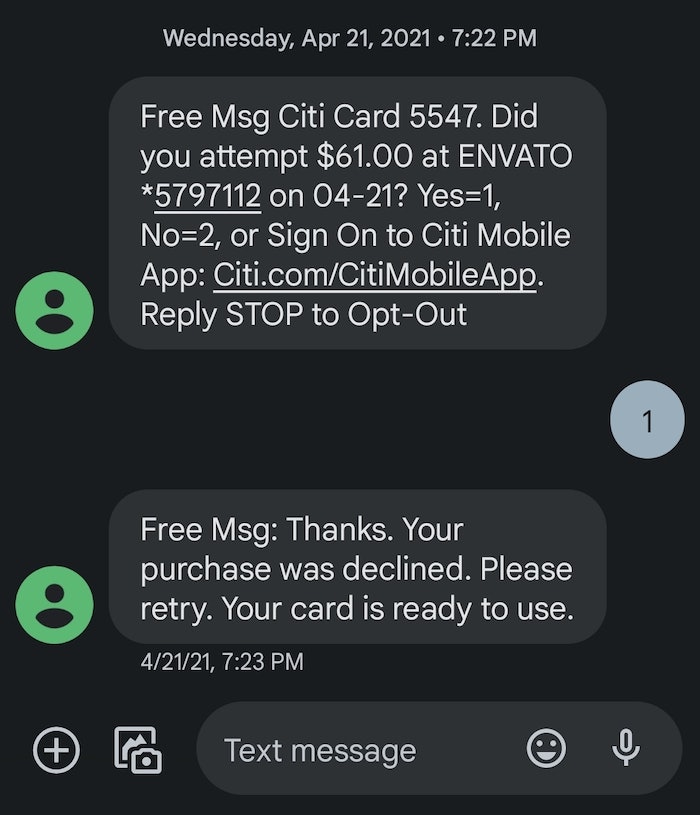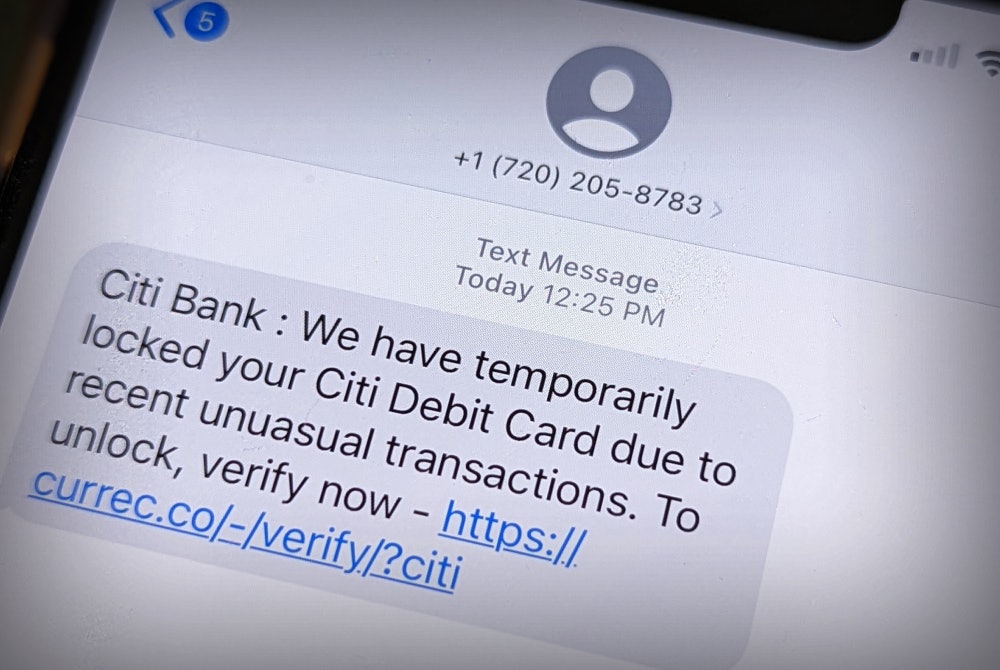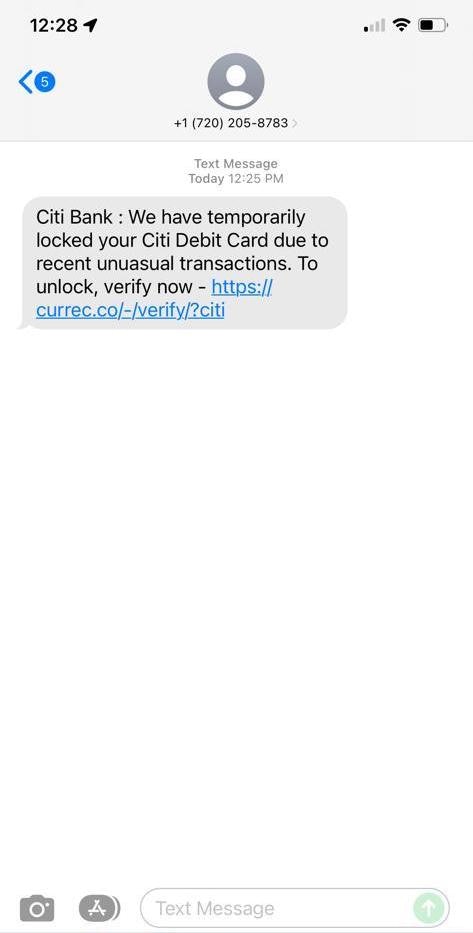- The Citibank Scam Text Message
- Identifying the Scam Message
- Other Examples of Citibank Scam Texts
- Real Citibank Text Messages
A new text message targeting Citibank debit card customers is a scam. Do not follow the links if you have received the text message below and delete it immediately.
The message is sent from the phone number (720) 205 8783 and several other numbers (likely number spoofing).
Although a message like this is alarming (i.e., you're notified that your card has been blocked), it's very important not to follow the links in the message.
The Citibank Scam Text Message
Here are the details of the scam text which targets Citibank Debit Card customers and tries to scare customers into clicking the phishing link.
Scam Text MessageCiti Bank : We have temporarily locked your Citi Debit Card due to recent unuasual transactions. To unlock, verify now - https://currec.co/-/verify/?citi
If you follow the link, it will take you to a fake Citibank website where you'll be directed to log into your account. If you do, the scammers will steal your Citibank login details.
This screenshot shows the text message in detail. We will break down the three ways to identify this as a scam below.
Identifying the Scam Message
Many phishing text messages are very hard to detect. However, in the case of this message, three giveaways make this scam easier to spot and delete.
- Citibank is misspelled. The text message says "Citi Bank", but the actual name of the company is "Citibank" (i.e., one word).
- There is a spelling mistake in "recent unuasual transactions" as the word unusual is incorrectly spelled.
- The link to follow is not a Citibank domain and points to https://currec.co/-/verify/?citi, which is not a Citibank.com website.
What You Should Do
- Verify your account status: If this message causes alarm, log into your Citibank account online and check there. Log in by visiting the Citibank.com/Citi.com website directly or via the app—do not follow the link in the text message.
- Never follow links from text messages or emails. Always go to your computer and log in directly as you would usually and check your account and your secure messages from your bank.
- Call Citibank directly if you are unsure—remember always to avoid the links in any messages.
- Delete the text message.
Do This to Avoid Identity Theft
A service called IdentityWorks Premium monitors you important accounts and alerts you when there is suspicious activity. You can quickly see if anyone is trying to set up accounts using your details
- Up to $1 million in identity theft insurance
- Lock and unlock your Experian credit file
- Experian, Equifax & TransUnion Credit Bureaus monitored
It is a great way to protect yourself from loosing money to scammers. You get 30 days free when you sign up, then pay $19.99 per month.
Citibank's Official Fraud Alerts
Citibank's official text message alerts will be sent from the shortcode 95686 and their official email alerts will come from [email protected].
Other Examples of Citibank Scam Texts
Other examples of this text message scam have been circulating with both Citibank debit cards, and a general unusual activity fraud alert doing the rounds. Screenshots of these text message scam examples can be found below.

Real Citibank Text Messages
Not all text messages you receive are scams—Citibank does send you text messages if suspicious activity is identified on your account.
Here is an example of a real Citibank text message:

Note that the URL included in the text message is the legitimate Citi.com website and not a scam website address.
Similar scam text messages are impacting other banks and financial institutions including Wells Fargo text alerts, Chase text alerts, and American Express text alerts.
Block Scam Texts
Your messaging app may be able to block scam/spam texts from reaching you in the first place. If not, use a third-party app.
Other Types of Scam Texts to Be Aware Of
Scammers are sending more and more scam text messages pretending to be from legitimate companies and banks:
- Amazon
- Amex
- Apple
- AT&T
- Capital One
- Chase
- Citibank
- Citizens Bank
- Fedex
- Navy Federal
- Netflix
- PayPal
- Truist
- UPS
- Venmo
- Verizon
- Walmart
- Wells Fargo
Don't click on links within these texts or call the phone number listed. You should always find the genuine number for the company on their official website.



Comments